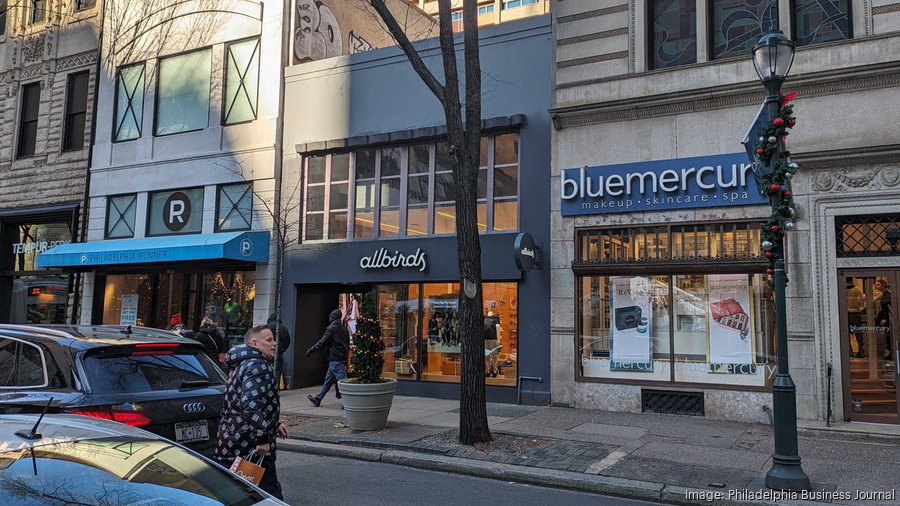After leasing activity and pedestrian traffic in Center City began to recover from the effects of the Covid-19 pandemic in 2022, that momentum continued to boost retailers in Philadelphia over the last year.
Retail occupancy in the Center City District was at 84.5% as of September, working its way back toward the 89% seen in pre-pandemic 2019. In October, daily foot traffic in core Center City — between Pine and Vine streets from the Delaware River to the Schuylkill — reached 82% of 2019 levels.
Meanwhile, pedestrian levels compared to 2019 on weekday evenings (87%) and weekends (95%) show downtown is rebounding as a retail, dining and entertainment destination, Center City District reported.
Nadia Bilynsky, a principal at MPN Realty and managing director for its leasing team, said the brokerage worked on more deals this year than in any other since 2020.
“People are now going out more. Center City is busier in general,” Bilynsky said. “More of the office workers are back in the offices. This is helping drive the retailers and the restauranteurs to have that foot traffic again that for the past couple years beforehand was still greatly recovering from Covid shutdowns.”
As was the case in 2022, Center City’s growing residential population has helped offset the reduction in office workers in the central business district caused by the rise of remote and hybrid work. As of October, Center City had 26% more residents than it did in 2019.
As the residential population grows, more retail and hospitality tenants have followed. Two gyms opened on South Broad Street in 2023, the remodeled 110,000-square-foot Sporting Club at the Bellevue and Wolf Fitness at One South Broad.
Bilynsky said apparel brands, fitness centers and home goods stores have been the most active in looking for Center City space.
This year, home furnishings store Joybird opened at 1507 Walnut St., mattress store Saatva opened at 1712 Walnut St. and clothing brand Faherty opened at 1600 Walnut St. as Rittenhouse Square strengthened its position as a go-to shopping destination.
Along Market Street east of City Hall, though, the fortunes of retailers haven’t been as positive. Target closed at 12th and Chestnut streets and Marshalls closed at 10th and Market streets as concerns about theft and crime linger.
Bilynsky acknowledged that the healthy inventory of available retail space means property owners have to compete to lure businesses.
“Tenants are really evaluating their options and looking at where they want to be, where they’re going to be able to get good [tenant improvement] packages and things of that nature from landlords,” Bilynsky said. “It’s important when courting and going after tenants to be able to give them a nice package with regards to free rent, landlord work and/or [tenant improvements]. It is important in today’s world and it is a driving factor on where deals are getting done.”
In the suburbs, retail spaces saw mixed results this year. The 2.9 million-square-foot King of Prussia Mall set sales records. As one of the country’s largest malls, the Simon Property Group-owned shopping destination has opened 41 new stores in the past two years and plans to add 20 more in 2024. Italian food and dining emporium Eataly plans to open at the King of Prussia Mall in 2025.
At the same time, Philadelphia-based regional mall owner PREIT has continued battling financial troubles and filed for Chapter 11 bankruptcy protection earlier this month. It was the second time in three years PREIT filed for bankruptcy protection.
![]() By Paul Schwedelson – Reporter, Philadelphia Business Journal
By Paul Schwedelson – Reporter, Philadelphia Business Journal






